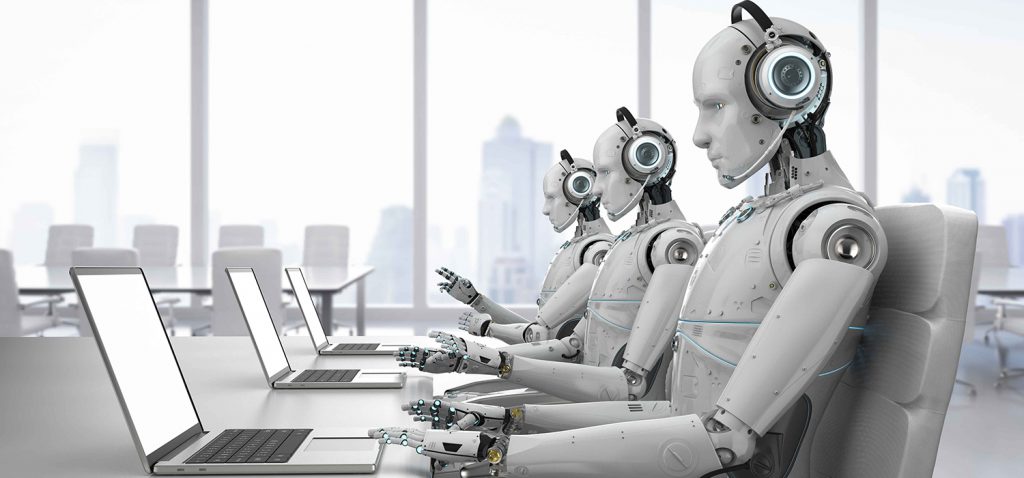Financial Mail Office
The Robots Are Coming
The bad news is that the robots are coming for your jobs. The good news is they’re only coming for the mundane, boring ones (for now). And one of the more innovative ways that they are going to do that is via robotic process automation (RPA). According to Dustin Strydom, Director of Automation Services at Open Box Software, RPA is freeing office employees from repetitive work that is prone to human error due to its monotony.
“RPA is a software agent, commonly referred to as a software robot, that is able to either partially or fully automate tasks within your business that are rules-based and repetitive,” says Strydom. “Administrative tasks are prone to human error, which can have drastic consequences for business-critical processes. RPA completely eliminates human error.”
RPA represents an attractive alternative because instead of writing customised code to transport data, it trains artificial intelligence to populate information through the same visual interface that a human operator would use. RPA is particularly well suited to tasks that can be automated, such as entering data into spreadsheets and matching data to records. It can also be applied to invoice capturing, replicating steps in the bank reconciliation process and consolidating data. This has uses across many industries.
RPA applications
“RPA is good for automating manual repetitive tasks,” says Adrian van der Merwe, CEO of local RPA specialist North Wind Digital. “It’s less suitable for tasks requiring subjective analysis and decision making. Rules-based tasks are easily automated, provided the exceptions have a predetermined escalation process.”
The finance sector has been an early adopter of RPA, and companies like Old Mutual Insure and WesBank have been using bots to run automated tasks, with the aim of reducing claim costs and ultimately costs overall.
“The finance sector is dependent on multiple systems that often lack integration, and require manual intervention to reconcile and migrate data,” explains Van der Merwe.
The appeal of faster data processing (a report by Accenture estimates one bot to equate to three full-time employees), performed 24/7 and with almost zero errors, is obvious. RPA is also easily scalable – instead of hiring, training and monitoring a new employee, you simply create a new bot with the knowledge of the existing ones. It’s also an attractive option for companies with legacy systems, says Van der Merwe. “RPA does not require integration into systems,” he explains. “RPA platforms can interact with systems as a user would, with the same level of governance and control that a user would have over the system.”
Future of work
RPA hasn’t been widely adopted yet in South Africa, and there are concerns about what it might mean for employment in entry-level administration jobs. Proponents, however, see it as an opportunity to shift employees up to perform higher level, more creative functions, rather than make them redundant, but that will require a fundamental shift in the skills profiles of employees.
In its The Future of Jobs Report 2018, the World Economic Forum (WEF) predicted a global shift in the balance between human and machine work. Presently, approximately 71% of total task hours are fulfilled by humans and 29% by machines; by 2022 that ratio is expected to have changed to 58:42. The report predicted that this shift would result in 54% of the workforce needing to be re-skilled or up-skilled.
On the local front, the WEF found that automation is likely to result in 53% of jobs requiring re-skilling ranging from less than one month (12%) to more than one year (9%). Emerging key skills include analytical thinking and innovation, technology design and programming, leadership and social influence, critical thinking and analysis, and emotional intelligence. At least until we train the robots in those too, then you’ll really need to worry.





 Sign-up and receive the Business Media MAGS newsletter OR SA Mining newsletter straight to your inbox.
Sign-up and receive the Business Media MAGS newsletter OR SA Mining newsletter straight to your inbox.